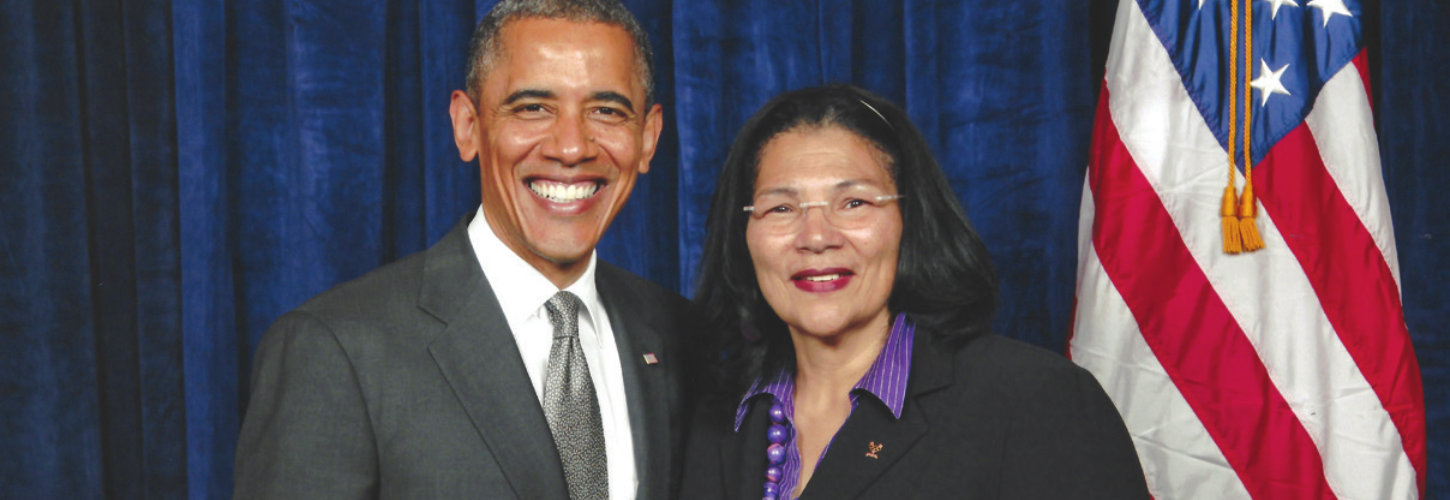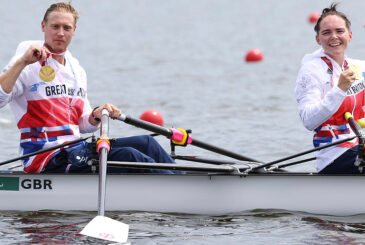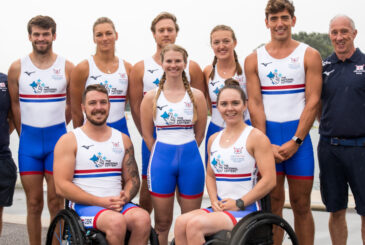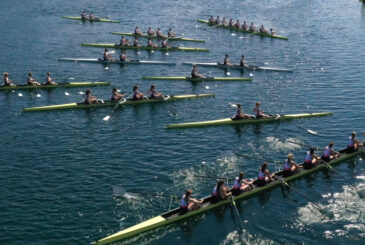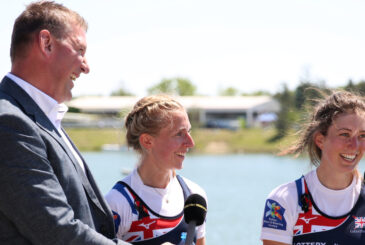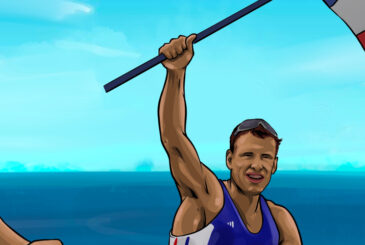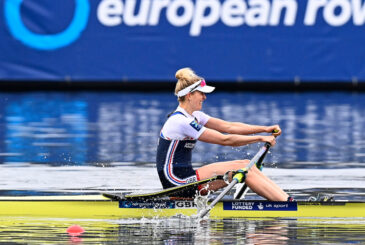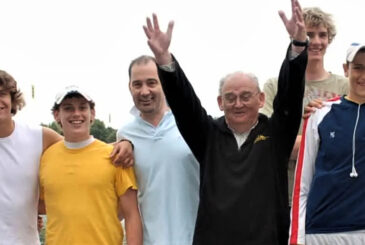In celebration of International Women’s Day on 8 March, Rosie Mayglothling talks to IOC Vice-President, Anita DeFrantz, a passionate advocate for equality and diversity
Named by Newsweek as one of the ‘150 Women Who Shake the World’, Anita DeFrantz’s contribution to sport and the Olympic Movement has been profound and inspirational since she was first elected an IOC member back in 1986.
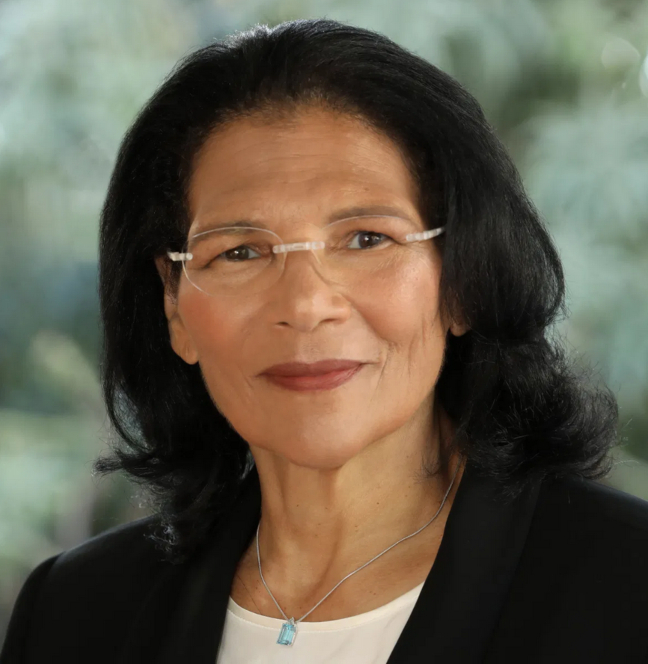
In 1997, Anita was the first woman to be elected Vice-President of the IOC and she is also the first female Vice-President of World Rowing. As an athlete, she represented USA at the first women’s Olympic rowing regatta in 1976, winning a bronze medal in the women’s eight.
A lawyer by profession, Anita has dedicated her life to bringing about equality in sports and is a passionate advocate for the positive influence that sport can have. Beyond sport, she also works tirelessly for social justice, setting up the Tubman Truth Corporation to help abolish modern slavery.
She says: “I strive to make sure that people have opportunity. From opportunity, magnificent things can arrive. But if you don’t have access to opportunity, everything stays the same.
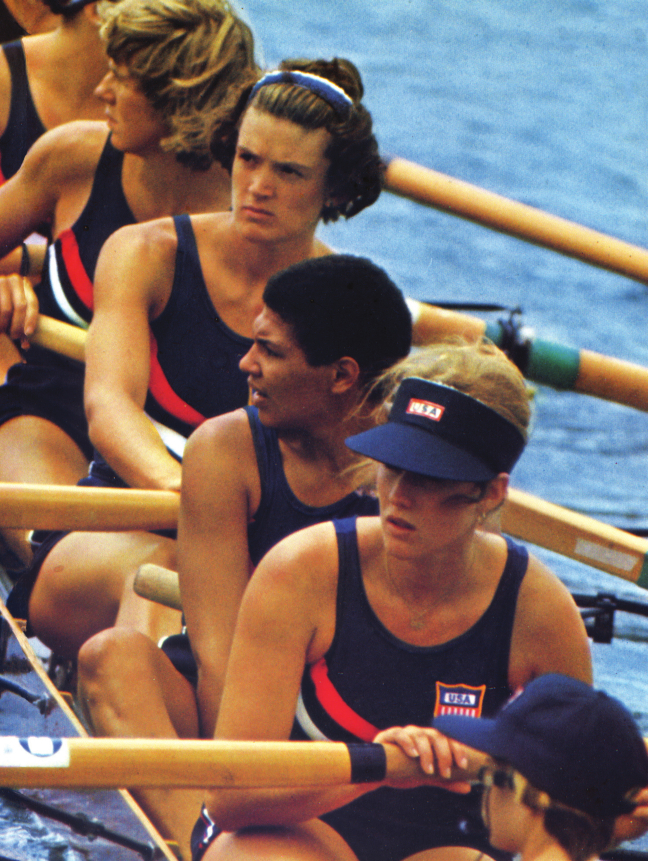
“We are one race, the human race – we’re all the same and we are each unique and, until we all believe that, we are going to have issues with racism, discrimination.”
A recipient of the IOC’s prestigious Olympic Order, Anita currently serves on four IOC commissions, including the Coordination for the Tokyo 2020 Games, and is an honorary member of the Women in Sport Commission after serving as chair for nearly 20 years.
Speaking from her home in Santa Monica, California, Anita talks to Rosie Mayglothling about the Olympics, the Olympic Village, the USA’s boycott of the 1980 Olympic Games and, of course, Tokyo 2021 in a special interview to celebrate International Women’s day.
“Rowing encapsulates what we need for a better world by teaching us to work together”
Rosie: How did you get into rowing?
Anita: My entree into rowing was by chance. My second year at Connecticut College, which is university level, I walked across campus and there was this thing sitting in slings. I went over to see what it was. And the man – a very tall man – standing there said, it’s rowing, and you’d be perfect. I thought, now, there’s a line. I wasn’t perfect for anything.
But I said, okay, well, what do I need to have to do this? He said, you need to know how to swim. I said, since I was four years old. And that’s how I got into rowing.
Rosie: So, how was it to be a black athlete at the time that you started, because you must have been in the minority?
Anita: Well, my mom taught me, taught us all – I have three brothers – that we are one race, the human race and we are all the same. And each of us is unique, so I had that kind of preparation for the world in which I lived.
And my parents also taught us, if you want to do something, figure it out. If there’s a barrier, figure out how to get around it, remove it, or just make it go away, somehow, so you can get to your goal. We were taught to ask why, as well as why not.
Rosie: What did it mean to you to row?
Anita: Rowing for me, is freedom on the water. We’re on it, but not in it. I call it, as you know, the ultimate team sport. I know there’s single scullers out there, but with that exception, we have to work together.
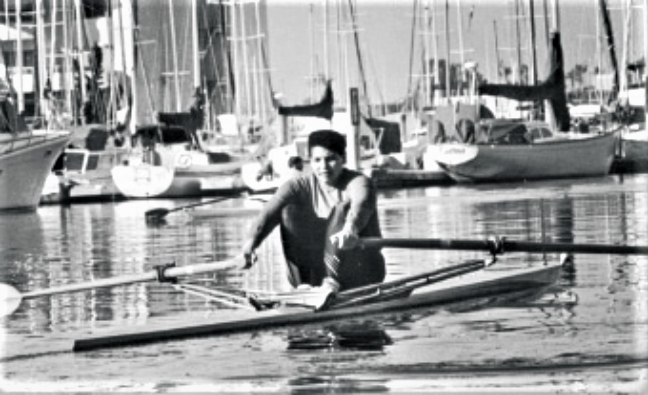
Rowing encapsulates what we need for a better world by teaching us to work together. We don’t have to agree on everything else outside of the boat. But once we get into the boat, we’re unified in our mission.
Rosie: What rowing experience shaped you the most?
Anita: Going to the Olympic Games in Montreal – because it wasn’t just rowing, it was the Olympic Village, where all of humanity was present – both sexes, all colour tones of skin and shapes. And we could just go into the dining hall and sit down any place. Even if you didn’t know the language of the person sitting next to you, you could communicate.
It just opened my mind to the real possibilities of this world.
“It was a horrible experience. I got death threats, hate mail”
Rosie: It would be remiss of me if I didn’t ask you about your 1980 Olympics experience. A few months before the Moscow Games, the US Olympic Committee agreed to support President Jimmy Carter’s call to boycott the Games after the Soviet invasion of Afghanistan in 1979.
I was in the women’s eight for Great Britain that year, so I remember you beat us in Lucerne at the final regatta before the Olympic Games. There was a sort of sweet and sour feeling because you won, but you then weren’t able to go to the Games. I think that the decision had already been made…
Anita: It was made on April 13th. My only regret is that I never got to meet with President Carter in person. [On one occasion], he was in the room with 300 other people, but he did all the talking. And then he left without taking any questions. I would have suggested, had I had the chance, that we send a team like the Europeans were doing, where we wouldn’t use our own flag.
Of course, we were sad that we weren’t [going]. But the most important thing, for me at least, was for the Games to continue.
Rosie: And I’ve read that, for you, it was a life-changing experience.
Anita: It was a horrible experience. I got death threats, hate mail, suspicious people wanting to meet with me, people offering to pay my way to Moscow, so it was bizarre.
Rosie: But I thought you asked a very good question at the time.
Anita: Yes, I finally had the chance to ask the key question at a meeting at the State Department in Washington DC. If we stay home, will one life, just one life, be saved, just one, so we know we did it for a reason?
And David Jones, the Chairman of the Joint Chiefs of Staff, thought about it appropriately, then he said, ‘No, I can’t say that even one life will be saved’.
And that was it for me. Because it was so blatantly political. What a great thing to do – to take the life, the goals, dreams, away from 500 people.
“The Games in Tokyo will go on. That is my firm belief”
Rosie: Moving to Tokyo – I know you’re extremely close to it, because you’re sitting on the group that’s overseeing the Games. It’s very difficult for athletes when you keep getting all this chatter in the background.
Anita: The Games in Tokyo will go on. That is my firm belief.
I’m a part of what’s called the Coordination Commission, which has a group of people from the IOC, as well as representatives from the international federations and the national Olympic committees and we work on, not only redoing the contracts, but trying to find ways for things to cost less and to salvage as much as possible.
The athletes’ experience is going to be a lot different from other Games – the rookies won’t know really. Hold on for another four years, they’ll find out how different it is.
You’ll leave 48 hours after you finish competing, and [there’ll be no] no gatherings. I guess you can’t tour the city at all, so it’s going to be very, very different.
No matter what the political machinations, the US team – if those athletes want to go – we’ll certainly be there, as is the case as well for Beijing. To me, it’s up to the athlete and no one else.
Rosie: Reflecting on our conversation about not being able to go to the 1980 Games and also Tokyo – many athletes only get one chance to compete at an Olympics.
Anita: Yes, I think maybe 20% of the athletes who are going to Tokyo have competed previously at Games, so they had to make a really important decision. Do I continue another year? Or do I get on with my life? The only thing I would say is that’s easier than it was for us in 1980.
We know a whole lot of people’s lives were saved by us not trying to have the Games in the middle of COVID-19. So, for those athletes, my heart goes out to have to make that decision, and to continue to train – but you’ve done something really important for the world.
Rosie: You were the first American woman who was an IOC member. You’ve served on the IOC Executive Board twice and you are now Vice-President for the second time. Can you tell us more about your long and very successful career within the Olympic Movement?
Anita: In 1980, the US administration tried to destroy the Games – they failed. I’m happy for that. But after that, I had to decide what I was going to do with the rest of my life.
I was offered a job at the Los Angeles Olympic Organising Committee. I got to design the village and that was a heck of a lot of fun. And I told my staff, just pretend that you’re having 5,000 of your closest friends come over to stay for about a month. But they need to be housed and fed and entertained, so they can focus on why they came to visit with you for a month. So that was a delight to be able to design it.
“Sports is also about storytelling and inspiration”
And lo and behold, I was asked to help Anchorage with their Olympic bid [for the 1992 Winter Olympic Games] which was why I was in Lausanne in the Olympic city. And I was elected to the IOC. It was incredible. So, 10 years after my first experience in the Olympic Movement, I was elected to be a member of the governing body of the Olympic Movement worldwide.
And over these years I’ve been doing work to make it what it says it is – to unite the youth of the world – that means girls and boys or men and women. And a good governance means that you have people who look like the world on your board.
When I arrived at the IOC, I was the fifth woman to be elected. I’m proud to say that today 38% of the membership of the IOC are women. Yes, gender parity [for athletes] will be very close in Tokyo, we’ll be there 50:50 for men and women in Paris.
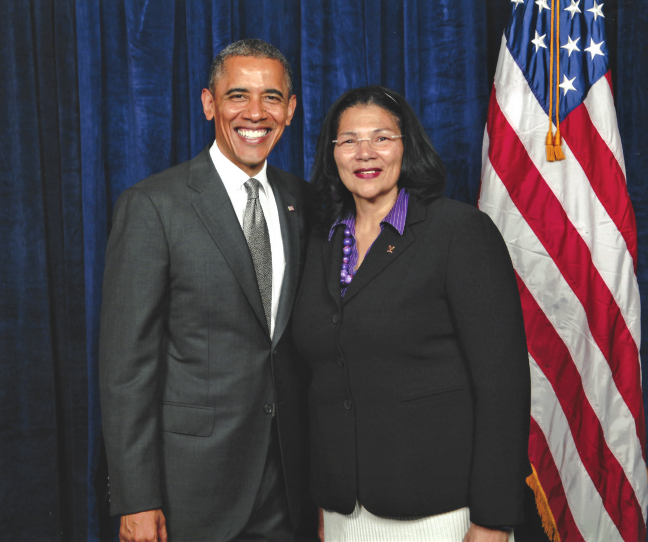
Rosie: I would love to ask you about the LA84 Foundation, which has done amazing work in making youth sport accessible to everyone.
Anita: First, the LA84 Foundation was the best job in the world for me, I never would have thought that it could exist. But there I was on the ground floor, putting together a foundation for youth and sport.
Once I left there, I wanted to write my memoir, and I wanted to make sure that LA got the 2024 Games. Well, the memoir was done, but we got the 2028 Games which is not bad at all.
Rosie: As this is for a British audience, I was wondering how we could make rowing appeal to more communities within the UK?
Anita: It depends on which age group you’re addressing. For parents, sport is one of the best things – especially team sports – that you can do for your kids.
Sports is also about storytelling and inspiration. So, you can be inspired by the challenges faced by athletes and how they attempt to overcome those, whether successful or not – it’s always inspirational. And each community can feel good if they support these types of activities.
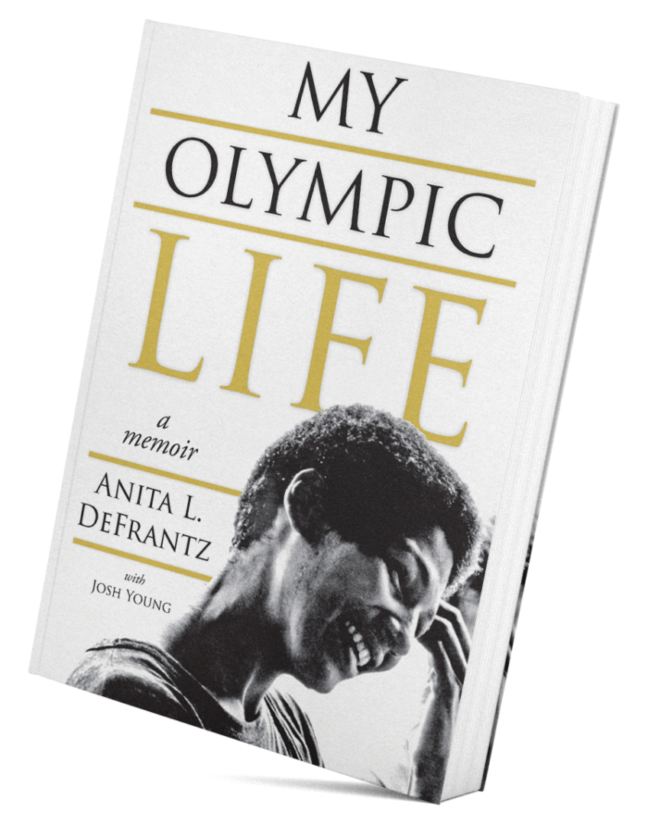
Anita DeFrantz’s memoir My Olympic Life was published in 2017. Find out more here.
Photos from Anita DeFrantz’s personal collection
–
–
–
–
–
–


